-
 Bitcoin
Bitcoin $84,258.9872
0.35% -
 Ethereum
Ethereum $1,590.5943
1.14% -
 Tether USDt
Tether USDt $0.9998
-0.02% -
 XRP
XRP $2.0990
1.26% -
 BNB
BNB $587.2456
1.30% -
 Solana
Solana $132.5296
6.11% -
 USDC
USDC $0.9999
0.00% -
 TRON
TRON $0.2483
-2.37% -
 Dogecoin
Dogecoin $0.1557
1.96% -
 Cardano
Cardano $0.6199
2.68% -
 UNUS SED LEO
UNUS SED LEO $9.1185
-2.93% -
 Chainlink
Chainlink $12.4572
2.80% -
 Avalanche
Avalanche $19.2046
1.97% -
 Toncoin
Toncoin $2.9568
3.52% -
 Stellar
Stellar $0.2397
2.14% -
 Shiba Inu
Shiba Inu $0.0...01181
1.81% -
 Sui
Sui $2.0961
0.90% -
 Hedera
Hedera $0.1602
2.15% -
 Bitcoin Cash
Bitcoin Cash $330.4313
4.06% -
 Polkadot
Polkadot $3.6278
3.32% -
 Litecoin
Litecoin $74.9638
1.65% -
 Hyperliquid
Hyperliquid $16.4916
8.27% -
 Dai
Dai $0.9999
-0.01% -
 Bitget Token
Bitget Token $4.3499
0.87% -
 Ethena USDe
Ethena USDe $0.9990
-0.03% -
 Pi
Pi $0.6068
-1.04% -
 Monero
Monero $216.4766
0.12% -
 Uniswap
Uniswap $5.1795
0.94% -
 Pepe
Pepe $0.0...07203
1.55% -
 OKB
OKB $50.4898
-2.39%
What is Plasma Cash and its characteristics?
Plasma Cash enhances blockchain scalability by processing token transactions off-chain on Ethereum, using sidechains for efficiency and security.
Apr 08, 2025 at 07:35 am
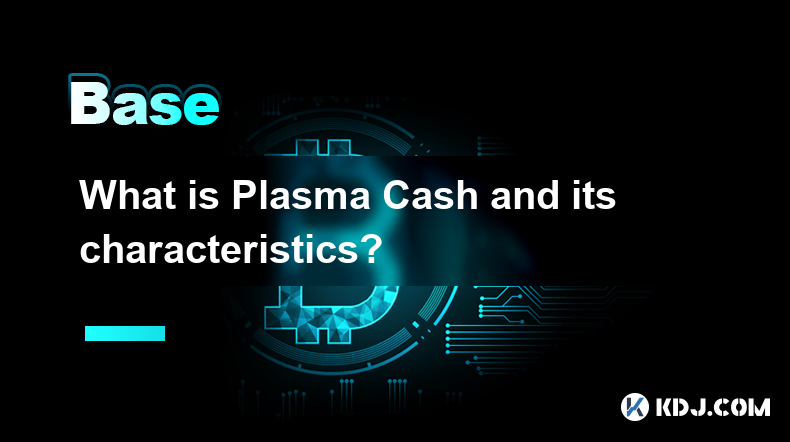
Plasma Cash is a scaling solution designed to enhance the efficiency and scalability of blockchain networks, particularly Ethereum. It is a specific implementation of the broader Plasma framework, which was initially proposed by Joseph Poon and Vitalik Buterin. Plasma Cash focuses on improving transaction throughput and reducing the load on the main blockchain by processing transactions off-chain in smaller, more manageable sidechains. This article will delve into the details of Plasma Cash, its characteristics, and how it functions within the cryptocurrency ecosystem.
Understanding Plasma Cash
Plasma Cash is a type of Plasma chain that uses a unique approach to manage and secure transactions. Unlike traditional Plasma chains, which can handle a variety of transaction types, Plasma Cash is specifically designed to manage the ownership of individual assets or tokens. This is achieved by assigning each token to a specific block and position within the Plasma chain, allowing for more efficient tracking and verification of ownership.
The core idea behind Plasma Cash is to create a system where each token is represented by a unique position in the Plasma chain. This allows users to prove ownership of a specific token without needing to download the entire Plasma chain, making it more scalable and efficient. By focusing on individual token ownership, Plasma Cash can handle a higher volume of transactions compared to other Plasma implementations.
How Plasma Cash Works
Plasma Cash operates by creating a series of smaller, interconnected sidechains that are anchored to the main Ethereum blockchain. Each sidechain, or Plasma chain, contains a series of blocks that record transactions related to specific tokens. Here's a detailed look at how Plasma Cash functions:
Token Assignment: Each token in a Plasma Cash system is assigned to a specific block and position within the Plasma chain. This assignment is recorded on the main Ethereum blockchain, ensuring that the token's ownership is verifiable and secure.
Transaction Processing: When a user wants to transfer a token, they create a transaction that updates the token's position within the Plasma chain. This transaction is then included in a new block on the Plasma chain, and the updated position is recorded.
Proof of Ownership: To prove ownership of a token, a user can provide a Merkle proof that demonstrates the token's position within the Plasma chain. This proof can be verified by anyone with access to the main Ethereum blockchain, ensuring the integrity of the transaction.
Exiting the Plasma Chain: If a user wants to move their token back to the main Ethereum blockchain, they can initiate an exit process. During this process, the user submits a transaction to the main blockchain that includes the Merkle proof of their token's position in the Plasma chain. Once the exit period is complete, the token is transferred back to the main blockchain.
Characteristics of Plasma Cash
Plasma Cash has several key characteristics that distinguish it from other scaling solutions and make it an attractive option for blockchain networks:
Scalability: By processing transactions off-chain in smaller sidechains, Plasma Cash can handle a significantly higher volume of transactions compared to the main Ethereum blockchain. This scalability is crucial for applications that require high transaction throughput.
Security: Plasma Cash leverages the security of the main Ethereum blockchain by anchoring its sidechains to it. This ensures that transactions on the Plasma chain are secure and verifiable, reducing the risk of fraud or double-spending.
Efficiency: The use of Merkle proofs to verify token ownership allows Plasma Cash to be more efficient than other scaling solutions. Users can prove ownership of a token without needing to download the entire Plasma chain, reducing the computational and storage requirements.
Interoperability: Plasma Cash is designed to be compatible with the Ethereum ecosystem, allowing for seamless integration with existing smart contracts and decentralized applications (dApps). This interoperability makes it easier for developers to build and deploy applications that leverage Plasma Cash.
Use Cases for Plasma Cash
Plasma Cash has a variety of potential use cases within the cryptocurrency ecosystem, particularly in areas where scalability and efficiency are critical. Some of the most promising use cases include:
Non-Fungible Tokens (NFTs): Plasma Cash is well-suited for managing NFTs, which are unique digital assets that represent ownership of specific items. By assigning each NFT to a unique position in the Plasma chain, Plasma Cash can efficiently track and verify ownership of these assets.
Gaming and Virtual Worlds: In gaming and virtual world applications, Plasma Cash can be used to manage in-game assets and virtual currencies. The scalability and efficiency of Plasma Cash make it an ideal solution for handling the high volume of transactions that occur in these environments.
Decentralized Exchanges (DEXs): Plasma Cash can be used to improve the performance of DEXs by processing trades off-chain and then settling them on the main Ethereum blockchain. This can significantly reduce transaction fees and increase the speed of trades.
Payment Systems: For payment systems that require high transaction throughput, Plasma Cash can provide a scalable and efficient solution. By processing transactions off-chain, Plasma Cash can handle a large volume of payments without overloading the main blockchain.
Challenges and Considerations
While Plasma Cash offers significant benefits in terms of scalability and efficiency, there are also several challenges and considerations that need to be addressed:
Complexity: Implementing and managing a Plasma Cash system can be complex, requiring a deep understanding of blockchain technology and the Plasma framework. Developers and users need to be aware of the technical intricacies involved in setting up and using Plasma Cash.
Security Risks: While Plasma Cash leverages the security of the main Ethereum blockchain, there are still potential security risks associated with the sidechains. Users need to be vigilant about the security of their tokens and the integrity of the Plasma chain.
User Experience: The process of proving ownership and exiting the Plasma chain can be complex for users, potentially impacting the user experience. Developers need to design user-friendly interfaces and tools to make it easier for users to interact with Plasma Cash.
Regulatory Compliance: As with any blockchain technology, regulatory compliance is a critical consideration for Plasma Cash. Developers and users need to ensure that their use of Plasma Cash complies with relevant laws and regulations, particularly in areas such as anti-money laundering (AML) and know-your-customer (KYC) requirements.
Frequently Asked Questions
Q: How does Plasma Cash differ from other Plasma implementations?
A: Plasma Cash differs from other Plasma implementations in its focus on managing the ownership of individual assets or tokens. While other Plasma chains can handle a variety of transaction types, Plasma Cash is specifically designed to assign each token to a unique position within the Plasma chain, allowing for more efficient tracking and verification of ownership.
Q: Can Plasma Cash be used with existing Ethereum smart contracts?
A: Yes, Plasma Cash is designed to be compatible with the Ethereum ecosystem, allowing for seamless integration with existing smart contracts and decentralized applications (dApps). Developers can build and deploy applications that leverage Plasma Cash without needing to modify their existing smart contracts.
Q: What are the potential risks associated with using Plasma Cash?
A: The potential risks associated with using Plasma Cash include the complexity of implementation and management, security risks related to the sidechains, potential impacts on user experience, and regulatory compliance issues. Users and developers need to be aware of these risks and take appropriate measures to mitigate them.
Q: How can Plasma Cash improve the performance of decentralized exchanges (DEXs)?
A: Plasma Cash can improve the performance of DEXs by processing trades off-chain and then settling them on the main Ethereum blockchain. This can significantly reduce transaction fees and increase the speed of trades, making DEXs more efficient and user-friendly.
Disclaimer:info@kdj.com
The information provided is not trading advice. kdj.com does not assume any responsibility for any investments made based on the information provided in this article. Cryptocurrencies are highly volatile and it is highly recommended that you invest with caution after thorough research!
If you believe that the content used on this website infringes your copyright, please contact us immediately (info@kdj.com) and we will delete it promptly.
- Kaspa (KAS) Price Prediction Hints at Accumulation Before Potential Surge
- 2025-04-17 22:15:13
- FET Price Prediction: Artificial Superintelligence Alliance (FET) Cryptocurrency Rebounds 10%
- 2025-04-17 22:15:13
- U.S. President Donald Trump Slammed Fed Chair Jerome Powell
- 2025-04-17 22:15:12
- Running a laundromat can't be as "easy" as potential investors may believe it is
- 2025-04-17 22:15:12
- BlockDAG (BDAG) Presale Explosion and Mobile Mining Powerhouse
- 2025-04-17 22:05:12
- Solana (SOL) Price Prediction: Eyes on $180 as Structure Turns Bullish
- 2025-04-17 22:05:12
Related knowledge
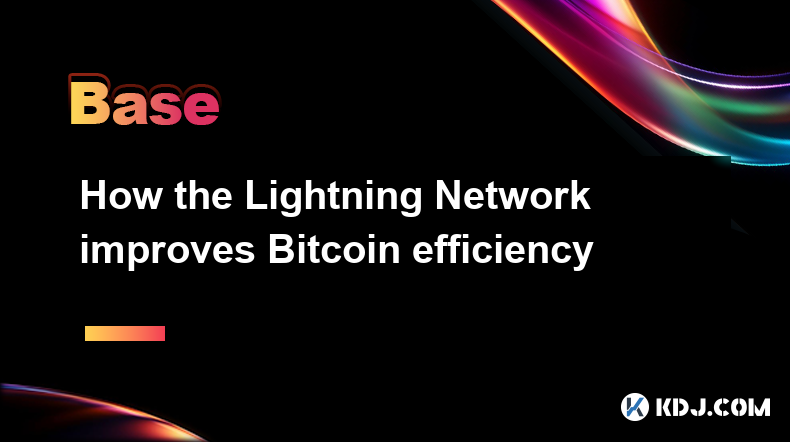
How the Lightning Network improves Bitcoin efficiency
Apr 17,2025 at 08:56pm
The Lightning Network represents a significant advancement in the Bitcoin ecosystem, aiming to address some of the most pressing issues related to transaction speed and cost. By enabling off-chain transactions, the Lightning Network drastically improves Bitcoin's efficiency, allowing for faster and cheaper transactions. This article will explore how the...

Analysis of the KYC process of cryptocurrency exchanges
Apr 17,2025 at 05:07pm
The Know Your Customer (KYC) process is a critical component in the operations of cryptocurrency exchanges. It serves as a regulatory measure to prevent fraud, money laundering, and other illicit activities. KYC procedures are designed to verify the identity of users and ensure compliance with financial regulations. This article delves into the various ...

What does Floor Price mean in the NFT market
Apr 17,2025 at 12:42am
The term Floor Price is a critical concept within the NFT (Non-Fungible Token) market, serving as a key indicator for both buyers and sellers. In essence, the floor price represents the lowest price at which an NFT from a particular collection is currently listed for sale on a marketplace. This price point is crucial for understanding the perceived valu...
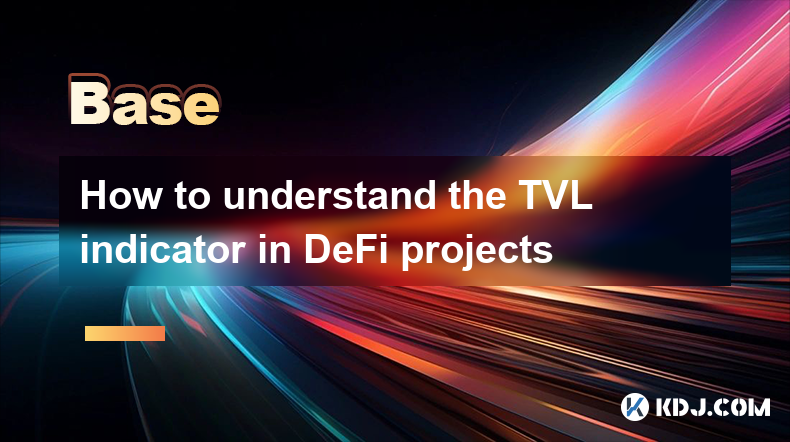
How to understand the TVL indicator in DeFi projects
Apr 17,2025 at 03:28pm
Understanding the TVL indicator in DeFi projects is crucial for investors and enthusiasts looking to gauge the health and popularity of decentralized finance platforms. TVL, or Total Value Locked, represents the total amount of assets that are currently staked or locked in a DeFi protocol. This metric serves as a barometer for the trust and interest tha...
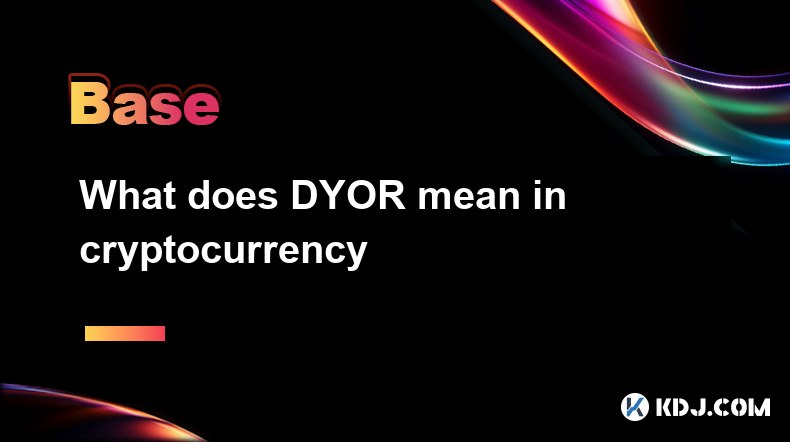
What does DYOR mean in cryptocurrency
Apr 17,2025 at 03:00pm
DYOR, or 'Do Your Own Research,' is a crucial mantra in the cryptocurrency community. It emphasizes the importance of individuals conducting their own thorough investigations before making any investment decisions. In the fast-paced and often volatile world of cryptocurrencies, relying solely on others' advice or the hype surrounding a particular coin c...
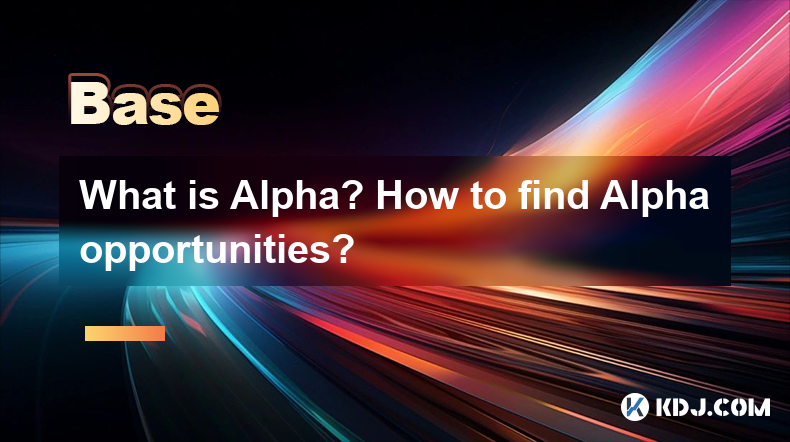
What is Alpha? How to find Alpha opportunities?
Apr 16,2025 at 12:42pm
What is Alpha?Alpha is a term widely used in the financial world, including the cryptocurrency market, to describe the ability of an investment to outperform a benchmark. In the context of cryptocurrencies, alpha refers to the excess return an investor achieves over the market's average return. For example, if the overall crypto market grows by 10% in a...

How the Lightning Network improves Bitcoin efficiency
Apr 17,2025 at 08:56pm
The Lightning Network represents a significant advancement in the Bitcoin ecosystem, aiming to address some of the most pressing issues related to transaction speed and cost. By enabling off-chain transactions, the Lightning Network drastically improves Bitcoin's efficiency, allowing for faster and cheaper transactions. This article will explore how the...

Analysis of the KYC process of cryptocurrency exchanges
Apr 17,2025 at 05:07pm
The Know Your Customer (KYC) process is a critical component in the operations of cryptocurrency exchanges. It serves as a regulatory measure to prevent fraud, money laundering, and other illicit activities. KYC procedures are designed to verify the identity of users and ensure compliance with financial regulations. This article delves into the various ...

What does Floor Price mean in the NFT market
Apr 17,2025 at 12:42am
The term Floor Price is a critical concept within the NFT (Non-Fungible Token) market, serving as a key indicator for both buyers and sellers. In essence, the floor price represents the lowest price at which an NFT from a particular collection is currently listed for sale on a marketplace. This price point is crucial for understanding the perceived valu...

How to understand the TVL indicator in DeFi projects
Apr 17,2025 at 03:28pm
Understanding the TVL indicator in DeFi projects is crucial for investors and enthusiasts looking to gauge the health and popularity of decentralized finance platforms. TVL, or Total Value Locked, represents the total amount of assets that are currently staked or locked in a DeFi protocol. This metric serves as a barometer for the trust and interest tha...

What does DYOR mean in cryptocurrency
Apr 17,2025 at 03:00pm
DYOR, or 'Do Your Own Research,' is a crucial mantra in the cryptocurrency community. It emphasizes the importance of individuals conducting their own thorough investigations before making any investment decisions. In the fast-paced and often volatile world of cryptocurrencies, relying solely on others' advice or the hype surrounding a particular coin c...

What is Alpha? How to find Alpha opportunities?
Apr 16,2025 at 12:42pm
What is Alpha?Alpha is a term widely used in the financial world, including the cryptocurrency market, to describe the ability of an investment to outperform a benchmark. In the context of cryptocurrencies, alpha refers to the excess return an investor achieves over the market's average return. For example, if the overall crypto market grows by 10% in a...
See all articles























































































